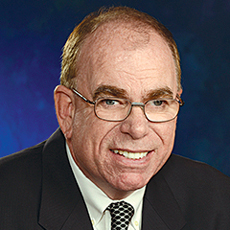
We all know how medication prescribing works.
While seeing a patient, a physician may decide to prescribe a specific medication, based on what appears to be the best treatment option.
That’s the standard practice, right? Yes, except of course, when it’s not.
During a trial now taking place in Boston, a physician convicted of illegally distributing an opioid is describing a rather different drug-selection process to the jury.
He claims a drug company’s attractive sales reps and easy money trumped other considerations. Along the way, he pocketed about $130,000 in less than 18 months for showing up for farcical educational dinners. As the saying goes, nice work if you can get it.
“They had beautiful sales reps and I liked the attention I was getting,” Dr. Gavin Awerbuch testified. “I felt like I was becoming friends with [the drug firm’s] employees.”
You mean to tell me that greed and lust took priority over the Hippocratic Oath? Say it ain’t so!
Then again, maybe it’s not hard to see why the good doctor was tempted. As it turns out, our editorial offices share a building with quite a few physicians. It’s a rare week when at least one drug rep doesn’t commandeer the common lounge area to lay out an impressive-looking lunch for the doctors and their helpers. As for the reps, most seem to be a year or two out of college and former cheerleaders. But I digress. I’m sure our local meals on heels program is all about providing adequate nutrition for busy healthcare professionals, nothing more.
Back to Awerbuch. His testimony was delivered during a racketeering case against John Kapoor, the 75-year-old founder of Insys. Prosecutors allege Insys executives routinely bribed doctors with nonsense speakers’ fees and then duped insurers into covering the resulting prescriptions for Subsys, which the firm manufactures.
Awerbuch testified that he would often have neighbors and friends show up for phony-baloney educational dinners. Other times, it would be just him and a sales rep at a dinner. My guess is that they probably just talked about improving patient-centered care. But who knows?
Regardless, these are not the kinds of developments that reflect well on either physicians or drug reps. Now to be fair, this is just one instance. But I’d be willing to bet that this is not a first-time development. As Cindy Lauper famously sang, money changes everything. And when it comes to medicine, there are billions and billions of reasons why hinky behavior might occur.
As for how much greed- or lust-driven prescribing takes place in the post-acute sector, who knows? What we do know is that it’s not uncommon for residents to be taking 10 or more prescriptions. Given that more than a million and a half residents are taken care of in long-term care communities each year, there would seem to be plenty of opportunity for less-than-ethical choices to creep in.
Kapoor’s case marks the first time a pharmaceutical company CEO is being put on trial in a case tied to the ongoing opioid crisis. Think there might be another one in the pipeline?
Perhaps a better question is this: How many more cases might there be?
John O’Connor is McKnight’s Editorial Director.




